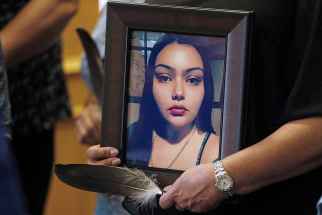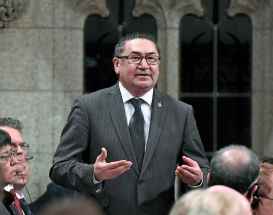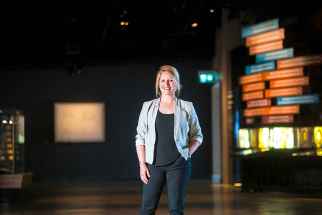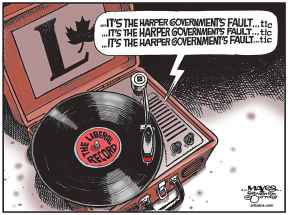CMHR, U of W join forces to give executives a crash course in Indigenous and human-rights issues
Read this article for free:
or
Already have an account? Log in here »
To continue reading, please subscribe:
Monthly Digital Subscription
$0 for the first 4 weeks*
- Enjoy unlimited reading on winnipegfreepress.com
- Read the E-Edition, our digital replica newspaper
- Access News Break, our award-winning app
- Play interactive puzzles
*No charge for 4 weeks then price increases to the regular rate of $19.00 plus GST every four weeks. Offer available to new and qualified returning subscribers only. Cancel any time.
Monthly Digital Subscription
$4.75/week*
- Enjoy unlimited reading on winnipegfreepress.com
- Read the E-Edition, our digital replica newspaper
- Access News Break, our award-winning app
- Play interactive puzzles
*Billed as $19 plus GST every four weeks. Cancel any time.
To continue reading, please subscribe:
Add Free Press access to your Brandon Sun subscription for only an additional
$1 for the first 4 weeks*
*Your next subscription payment will increase by $1.00 and you will be charged $16.99 plus GST for four weeks. After four weeks, your payment will increase to $23.99 plus GST every four weeks.
Read unlimited articles for free today:
or
Already have an account? Log in here »
Hey there, time traveller!
This article was published 04/06/2018 (2750 days ago), so information in it may no longer be current.
The Canadian Museum for Human Rights and the University of Winnipeg have teamed up to create the first-ever executive-level training workshop on Indigenous and human rights.
It’s a response to an expressed need from many business and organization leaders for guidance in shaping inclusive and respectful workplace cultures.
Among other things that will be addressed is the Truth and Reconciliation Commission’s Calls to Action; in particular, No. 92, which addresses the need for businesses to apply the principles of the UN Declaration on the Rights of Indigenous Peoples.
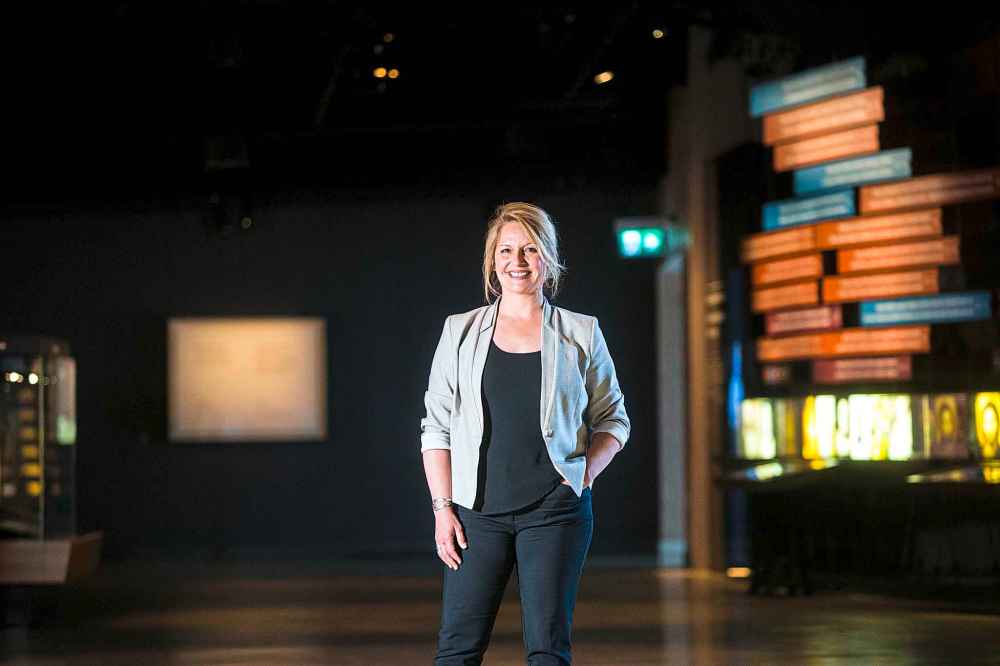
The six-day workshop, which will be held at the CMHR (the first session begins later this month) is designed to be experiential; participants will hear presentations from residential school survivors, activists, educators, human-rights scholars and Indigenous leaders as well as community voices such as youth advocate Michael Champagne and Mitch Bourbonnier, founder of the Bear Clan Patrol.
It is the CMHR’s first foray into this kind of leadership training but Mireille Lamontagne, who leads the museum’s advanced and professional programs, said it could be the start of many more to come.
“This is a brand-new pilot offering that’s totally unique in Canada,” she said Monday. “We did a bunch of research to see what was available out there for executive leadership and almost all are university-style courses.”
She said it was important to organizers that Indigenous instructors, rather than academics, deliver the material.
“We really wanted it to be taken outside classroom setting and have it off-site in the incredibly immersive environment of the museum,” she said.
The program is designed for executives and organization leaders from across the country — fees are $6,000 for the six-day course — but it is one that is a top-of-mind subject for many in Manitoba’s private sector.
Kevin Chief, vice-president of the Business Council of Manitoba, who will be one of the presenters, said it was made clear during the council’s 15th anniversary a couple of years ago that the education, training and employment of Indigenous people will be critical to the overall economic success and health and well-being of the province.
Dave Angus, co-chair of the Winnipeg Poverty Reduction Council and the former president of the Winnipeg Chamber of Commerce, said there is a strong desire in the corporate community to attain more knowledge about Indigenous history and culture.
“As a way to inform their companies in terms of the kind of things they will have to do to be more of an employer of choice for the Indigenous community,” he said.
U of W president Annette Trimbee said the university has worked with the museum on undergraduate programs, but this is the first program designed for executives.
The intensive, immersive format will allow for a deeper level of understanding, she said.

“More and more what we hear from the corporate sector is that that they need our grads to come to them with intercultural competencies,” she said.
“At the same time, they recognize they need to ensure their leaders have some of the same things they are looking for from our graduates.”
Educator and activist Charlene Bearhead and former grand chief of the Assembly of Manitoba Chiefs, Derek Nepinak are on the roster of presenters.
Nepinak said he thinks the program is an important opportunity for executives to get a more contemporary take on the changing nature of the role of leadership in Indigenous communities. In particular, he pointed to their role in disrupting the status quo.
“There is a broadening of the understanding of the scope and responsibility of what Indigenous leadership is in community,” he said.
“It’s not just the chief and council and grand chief, etc., but it’s taking on more of an urban flavour. There are more popping up without titles, more principled leadership, that is focused on addressing things like environmental change and climate change. It’s more nuanced than it used to be.”
martin.cash@freepress.mb.ca

Martin Cash has been writing a column and business news at the Free Press since 1989. Over those years he’s written through a number of business cycles and the rise and fall (and rise) in fortunes of many local businesses.
Our newsroom depends on a growing audience of readers to power our journalism. If you are not a paid reader, please consider becoming a subscriber.
Our newsroom depends on its audience of readers to power our journalism. Thank you for your support.

